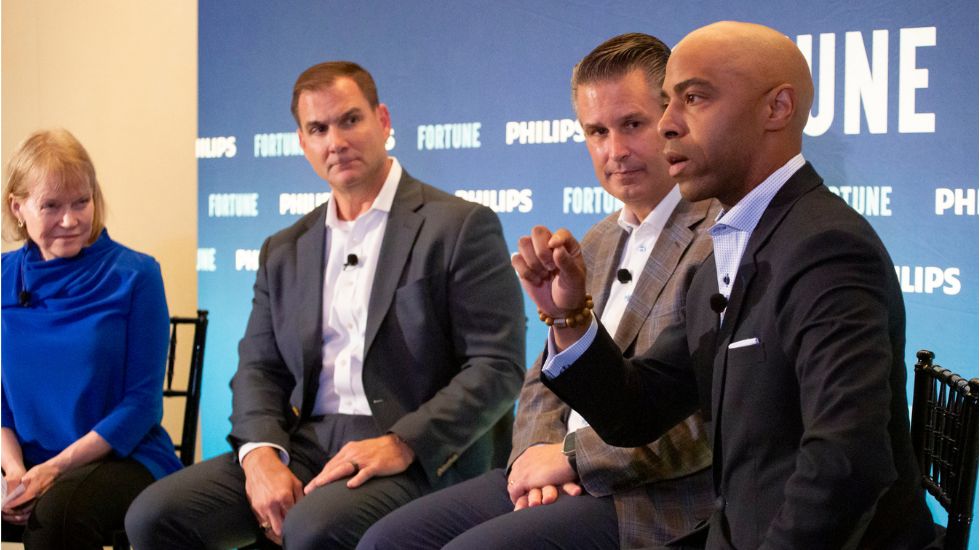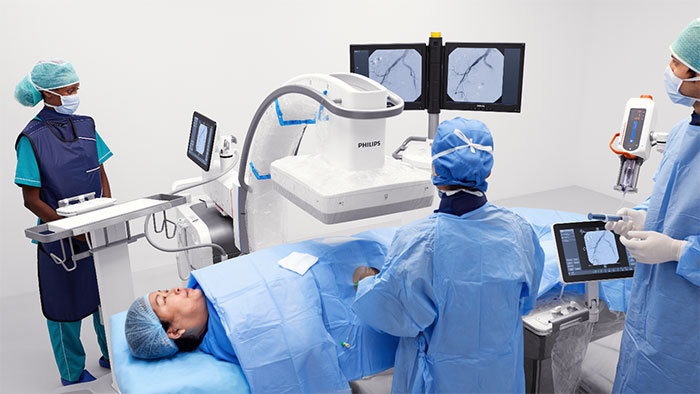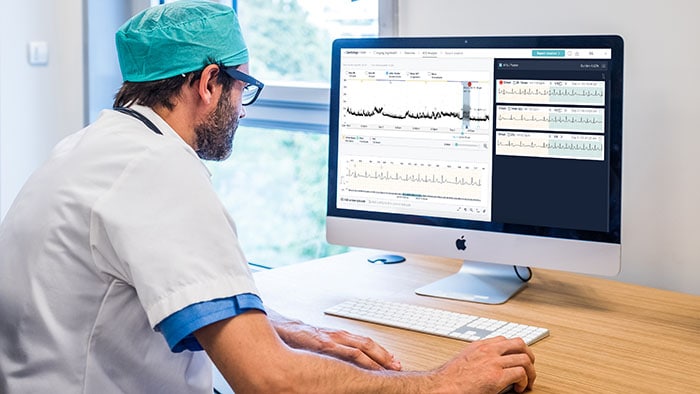
The landscape of healthcare has undergone a profound transformation since the onset of the COVID-19 pandemic in late 2019. Initially, healthcare workers responded to the crisis with the expectation that it was a temporary emergency. Yet, more than four years later, the increased demand for healthcare services, high rates of emergency department visits, and pervasive staff burnout persist, even as COVID-19 cases have significantly declined. This situation underscores a critical need for change in the healthcare system. With this in mind, Fortune gathered some of the top minds in healthcare for a panel discussion to share their insights and strategies for addressing some of the industry's most pressing challenges. Among them, how technology can help tackle staff burnout and shortages, which also emerged as top priorities in Philips’ newly released 2024 Future Health Index (FHI), an annual global survey of 3,000 healthcare leaders in 14 countries.
Moderated by Diane Brady, Executive Director of Fortune Live Media, the panel featured Jeff DiLullo, Chief Region Leader, Philips North America; Dr. Fritz François, Executive Vice President, Vice Dean, and Chief of Hospital Operations, NYU Langone Health; and David Entwistle, President and CEO, Stanford Health Care. Their conversation underscored the industry's commitment to overcoming current challenges through innovation and collaboration, charting a visionary path where technology and patient-centric care models are central.
If we can partner in the right ways to solve these challenges through technology and innovation, we exponentially improve the lives of doctors, nurses, and their patients across the world.
Here are five key takeaways from the event:
1. Innovation is critical to success
Innovation emerged as a cornerstone of the discussion, highlighting the transformative potential of technology and artificial intelligence (AI) in healthcare. Along with sharing exciting innovations that are evolving care delivery, the panelists emphasized how AI advancements can significantly reduce administrative burdens and redundancies, getting healthcare workers back to patient care faster. Innovation remains at the heart of Philips' commitment to provide better care for more people. Jeff DiLullo articulated this vision, noting the shared dedication of health systems like NYU Langone, which has implemented groundbreaking solutions to save valuable time for nurses and enhance patient care. Inspired by their digital transformation, DiLullo states, "It is mind-blowing the innovation they have to save minutes off a nurse's hour. The value to the nurses is immense because that’s 10 minutes more an hour they’re spending with their patients."
2. Bringing care to patients enhances both access and efficiency
Dr. Fritz François underscored the importance of bringing care directly to patients to improve access and efficiency. He shared a transformative story from Brooklyn, where NYU Langone turned the struggling Lutheran Hospital into a top-performing facility. "The entire focus is to bring the care to the patient. We don’t move patients," François explains, highlighting the use of advanced technology and decentralized care models. Now, the hospital has some of the lowest mortality rates in the country and it is the only hospital in Brooklyn with an A safety rating by Leapfrog. DiLullo and David Entwistle echoed the value of telehealth solutions in this approach, ensuring that high-quality healthcare is accessible to all, regardless of their location.
3. Improving patient experience benefits us all
The panelists agreed that technology plays a crucial role in enhancing the patient experience, which in turn benefits healthcare providers. Entwistle described an e-consult service at Stanford Health Care that reduces wait times to see specialists. DiLullo highlighted Philips' AI-driven transcription services that lower the cognitive load for physicians, allowing them to concentrate more on patient care. "When we improve the patient’s experience, we also reduce burnout for healthcare providers," he notes, adding that Philips' patient-centric innovations are designed to streamline workflows, reduce stress, and ultimately improve outcomes for both patients and providers.
The entire focus is to bring the care to the patient.
4. Efficiency and safety are paramount
Within hospital settings, technology can significantly enhance both safety and efficiency. François described a digital medication delivery system at NYU Langone that enables nurses to administer medication more quickly and accurately, reducing time spent away from patients. "We deliver information to their devices. Even alert them when a lab is ready—they get that notification right there," he explains. According to Philips FHI findings, 81% of health leaders reported delays in care because of staff shortages. It’s no surprise, then, that 88% believe technology to automate repetitive tasks is critical for addressing staff shortages, and 82% said virtual care had a positive impact on easing staff shortages at their organizations.
5. Strategic partnerships drive progress
The importance of strategic partnerships was a recurring theme during the discussion. During closing remarks, DiLullo emphasizes, "Our innovation, our focus on patient-centric design, is intended to be a tool for you.” Inspired by leaders like François and Entwistle, who are deeply committed to the well-being of their doctors and nurses, DiLullo adds, “If we can partner in the right ways to solve these challenges through technology and innovation, we exponentially improve the lives of doctors, nurses, and their patients across the world. Above all, the panel discussion illuminated the healthcare leaders' dedication to overcoming challenges through innovation and collaboration. Their insights revealed a clear vision for a future where technology and patient-centric care models play pivotal roles. By focusing on efficiency, safety, and strategic partnerships, these leaders are paving the way for a more accessible, effective, and sustainable healthcare system. As Jeff DiLullo aptly concluded, Philips’ mission to improve lives through meaningful innovation is a shared journey, and partnerships are essential in achieving this goal.






